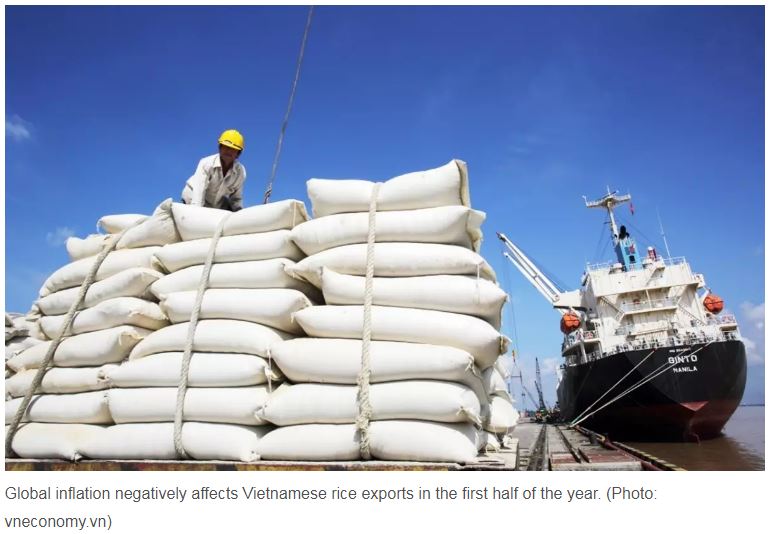Global inflation threatens Vietnamese exports
Rising global inflation occurring in several major consumer markets such as the United States, Japan, and the EU, are putting increasing pressure on Vietnamese exporters.
Since the end of May, exports activities conducted by Vietnamese enterprises in many key markets have shown signs of deceleration as a direct result of inflation.
According to a representative of a leading seafood exporter to Western countries, the impact of inflation around the world in the US, the EU, and Japan is forcing consumers to cut back on food spending, thereby affecting import demand.
Import enterprises have not cancelled orders, but instead have adjusted the delivery schedule from three to five months to wait for consumers to get used to new prices.
Another important factor is that the COVID-19 pandemic has largely been brought under control in most countries globally, meaning that importers are not in a hurry to sign contracts as they had been in late 2021 or at the start of the year. Due to these elements at play, Vietnamese seafood exports may continue to enduring difficulties moving into the second half of 2022.
According to Truong Dinh Hoe, general secretary of the Vietnam Association of Seafood Exporters and Producers (VASEP), inflation in some markets will have a significant impact on the country’s seafood exports in the remaining months of the year.
However, he added that due to the strong growth of exports in the first half of the year, aquatic export turnover is projected to hit US$10 billion, representing a growth rate of up to 12%.
Furthermore, the export of timber and wood products have also faced a number of challenges due to high inflation.
Rising inflation has led to Vietnamese exporters facing reduced orders from some foreign partners. As well as rescheduling deliveries, several importers have even canceled their orders. Many small businesses have lost contracts worth US$1 million to US$2 million, while other medium sized enterprises have faced canceled orders of up to US$5 million.
Le Van Luong, director of Dai Thanh Wood company, said that the peak export season of timber products has passed. In addition, the export situation in the third and fourth quarters has not shown any positive signs due to a lack of orders, with local firms not daring to accept orders from partners as they are afraid of cancelations.
Moreover, global inflation also negatively affected Vietnamese rice exports in the first half of the year.
During the first six months of this year, the average price of Vietnamese rice stood at US$489 per tonne, down nearly US$55 per tonne compared to the same period from last year.
In the first half of this year, the country exported 3.5 million tonnes of rice valued at US$1.7 billion.
The primary reason behind this is that the market is currently quiet and the summer-autumn rice harvest is underway, thereby causing the price of rice in the domestic market to drop slightly by VND100 to VND200 compared to the previous month.
Source: VOV


 Thailand
Thailand




